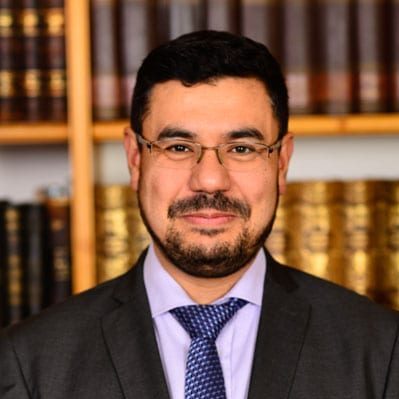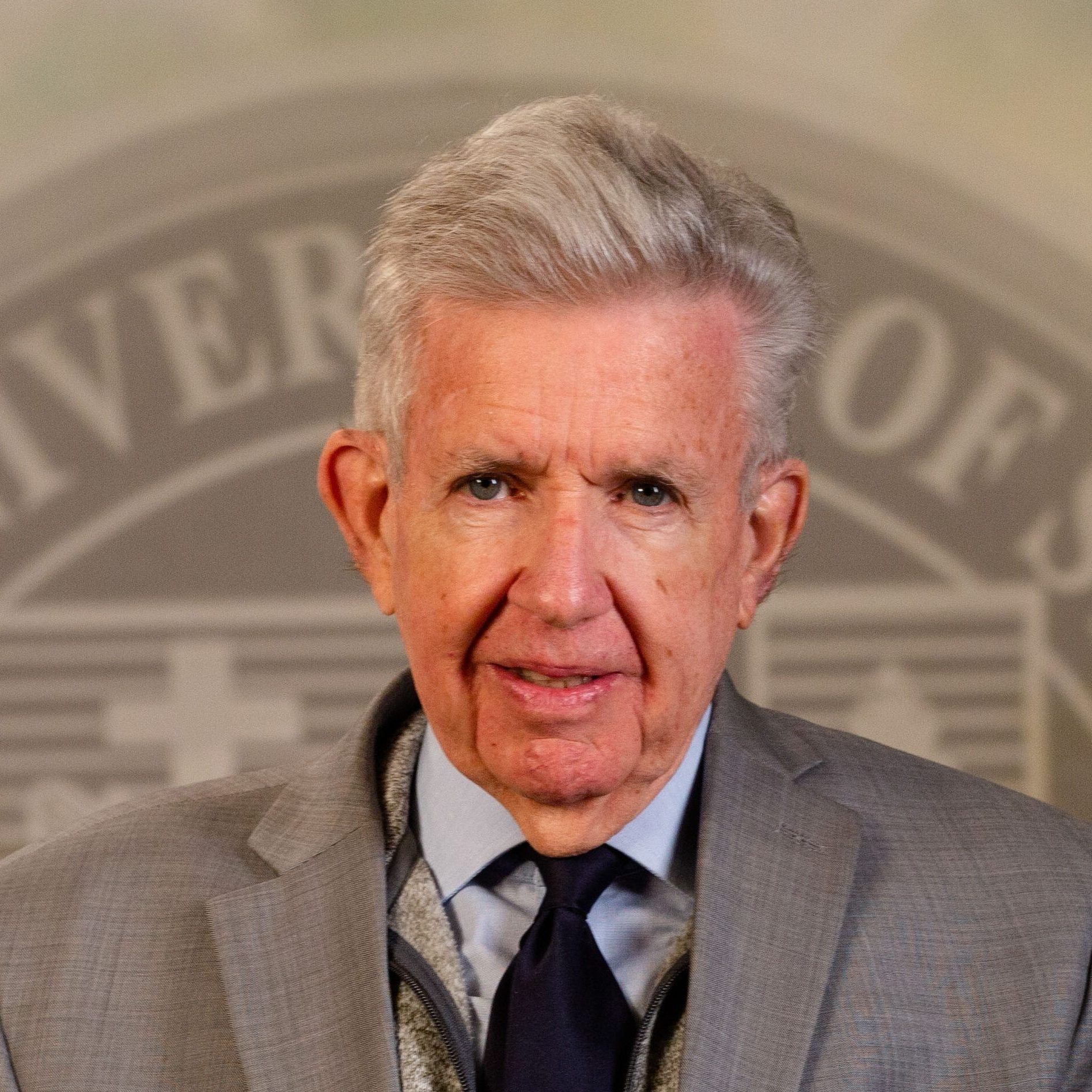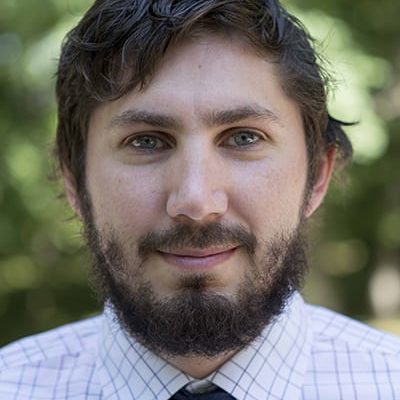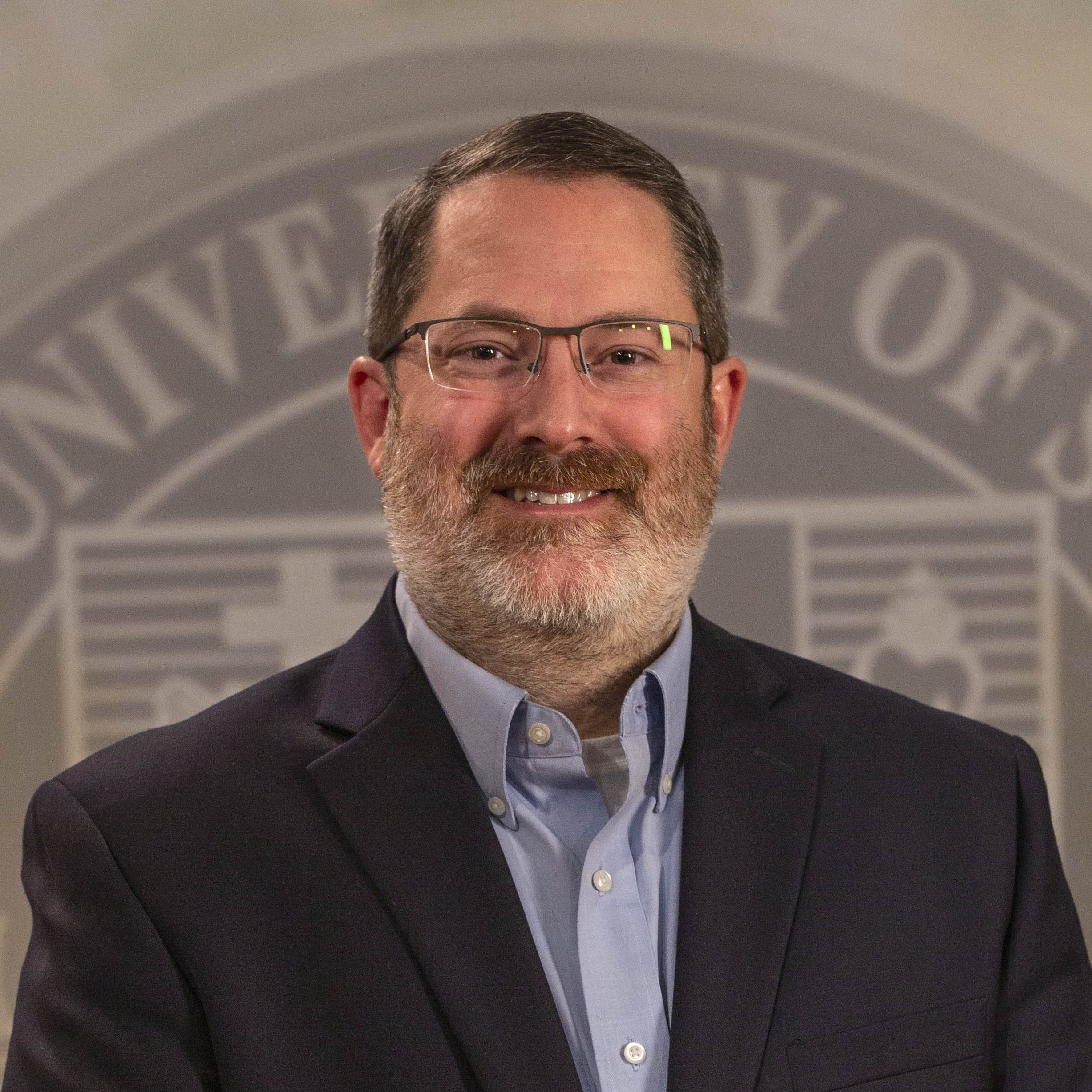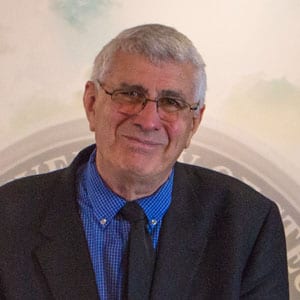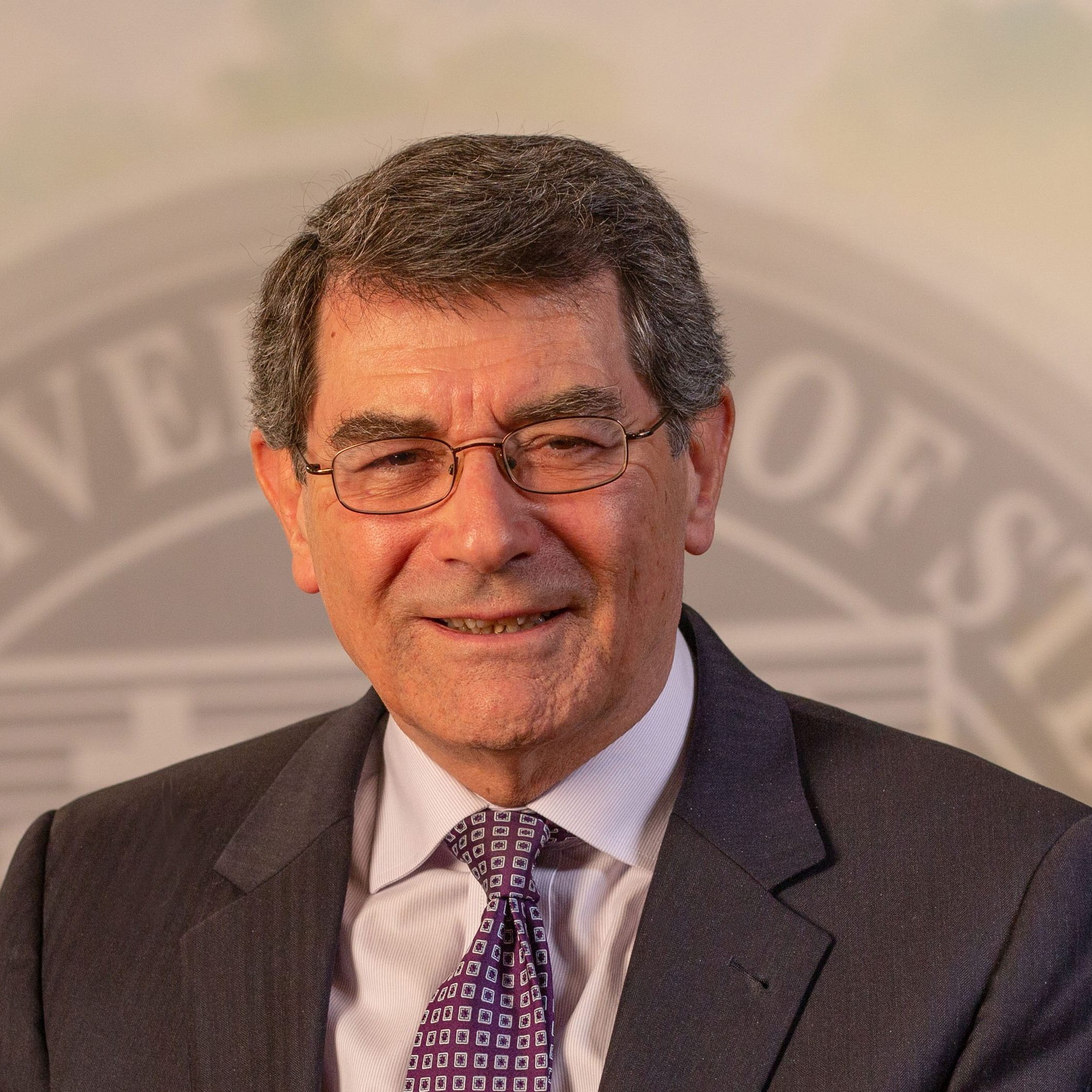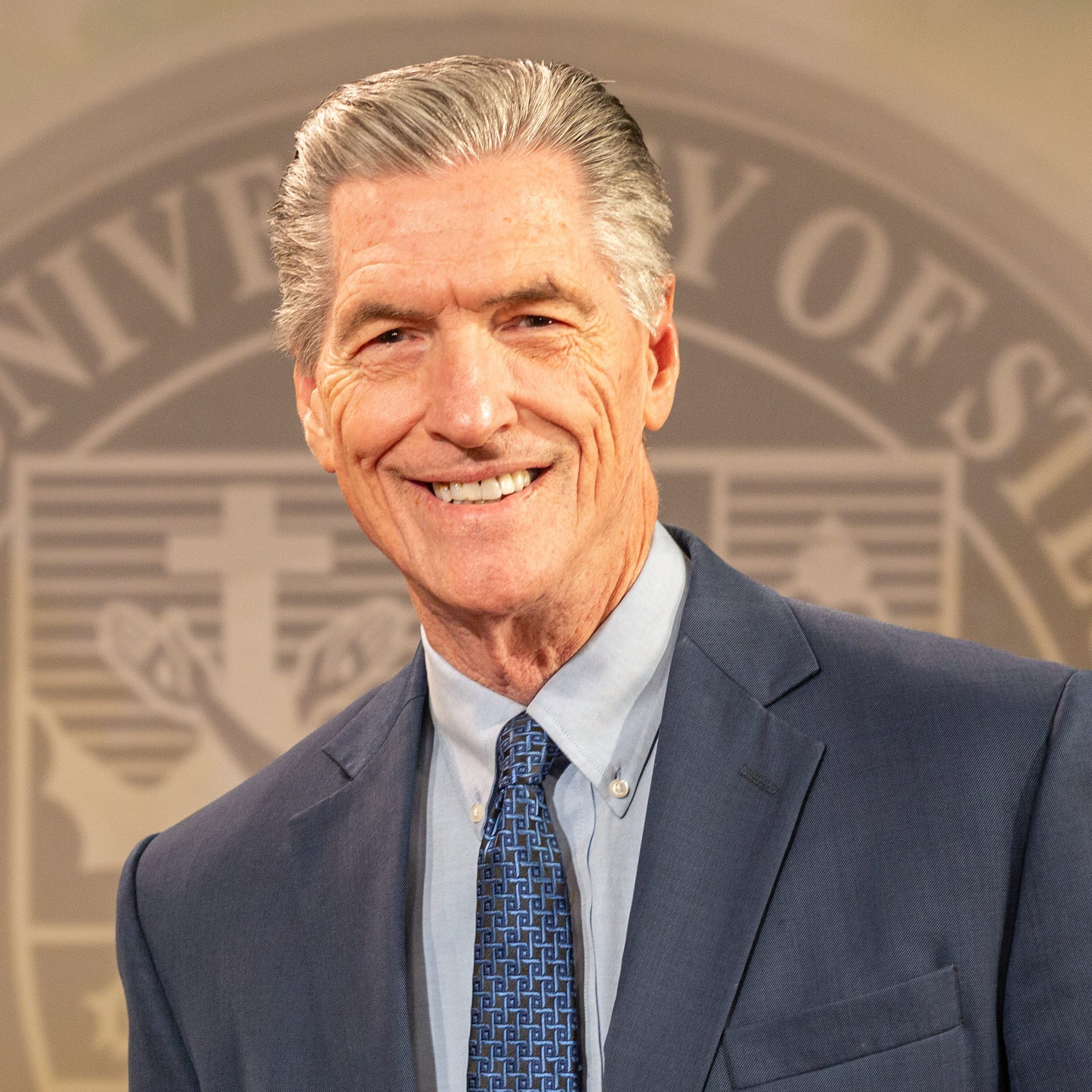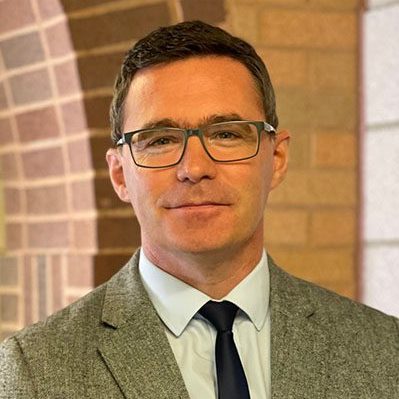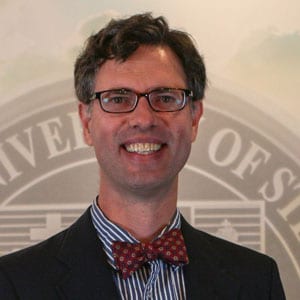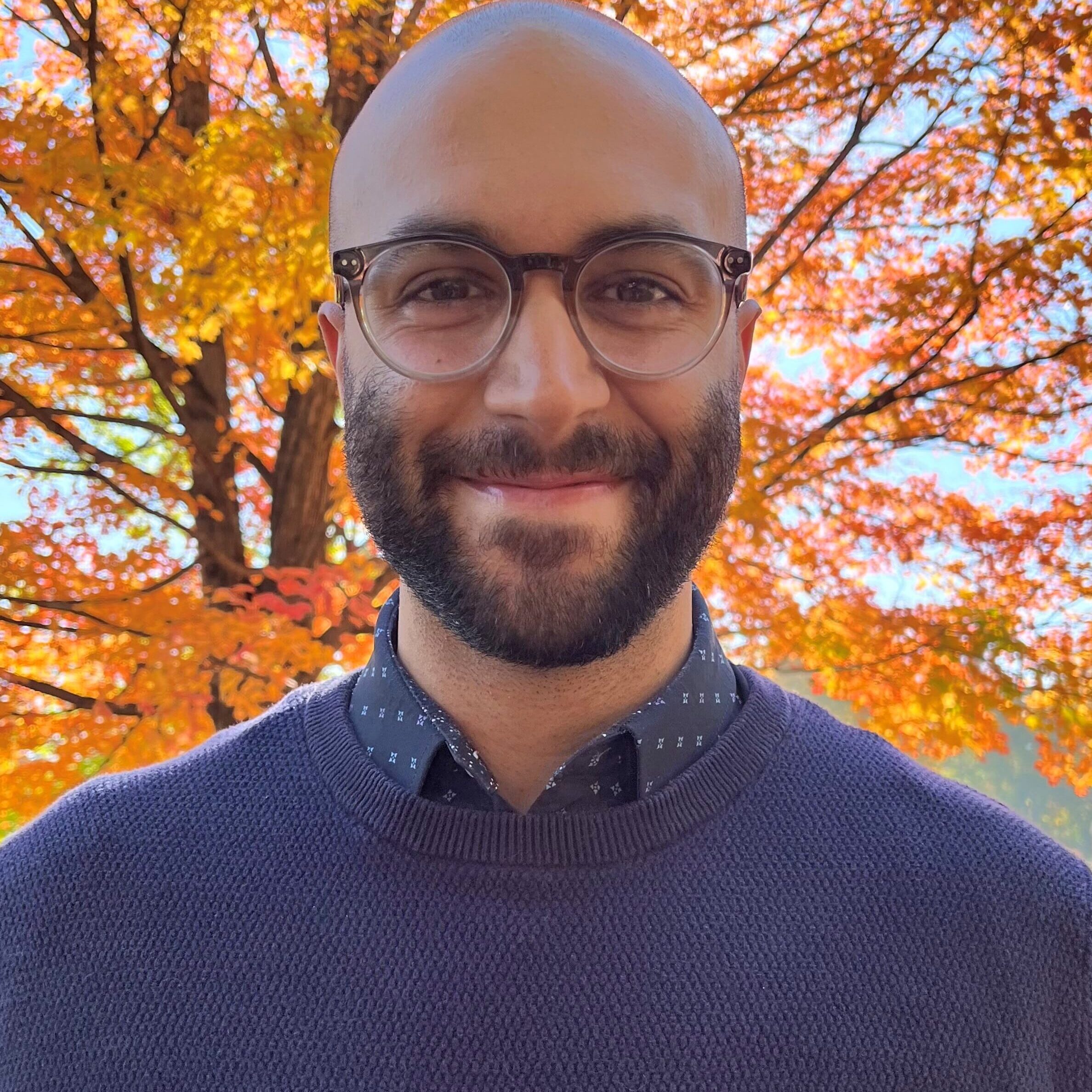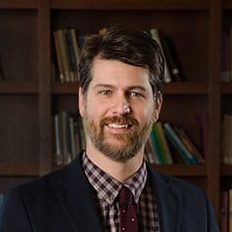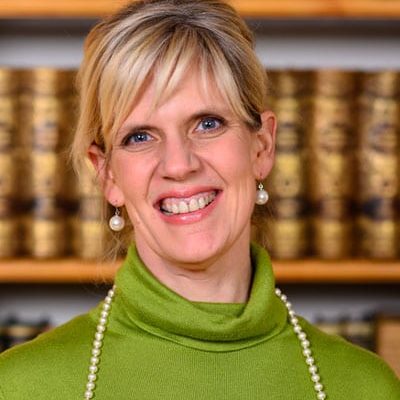Here are just a few other ways Franciscan’s philosophy master’s degree program stands out from the rest:
Accelerated MA in Philosophy: If you’re an undergraduate student earning your bachelor’s in philosophy from Franciscan University in Ohio, you may qualify to apply for the accelerated MA in philosophy program.
The traditional philosophy master’s degree at Franciscan typically takes two years to complete. The accelerated degree pathway allows you to complete the BA and MA, including the optional bioethics concentration, in a total of five years.
Move forward with your philosophy career faster.
Bioethics concentration: Enhance your philosophy master’s degree with additional studies in the relationship between biomedical technological breakthroughs and the dignity of the human person.
Rooted in the Catholic intellectual tradition, the bioethics concentration at Franciscan University will prepare you to make significant contributions in building up the culture of life.
A graduate degree for all: Under the belief that reason and faith stand in positive relation to each other, Franciscan’s philosophy master’s degree program serves not only faithful Catholics but also men and women who are serious about questioning human existence and seeking the truth.
Faithful, caring, and well-trained faculty: Representing a rich intellectual diversity, Franciscan philosophy faculty members are widely published and recognized leaders in their areas of expertise, including personalist phenomenology, Thomistic philosophy, and analytic philosophy.
Their special research interests include philosophy of religion, bioethics, analytic epistemology, personalism, Thomistic ethics, Thomistic metaphysics, and the thought of Kierkegaard, John Henry Newman, and Wojtyła.
With the highest degrees in their fields, all Franciscan philosophy faculty members have taken the Oath of Fidelity to the magisterium in Steubenville, Ohio.
Graduate student activities: Join Philosophy Club to deepen your Catholic philosophical thinking through critical discussion.
Sharpen your persuasion skills with formal debate and discussion through the Veritas Society. Attend guest lectures on campus in Ohio covering philosophy and related topics sponsored by the Disciplinary Intersection Lecture Series.
Through social and academic events, you become an active member of the larger graduate student and philosophical communities.



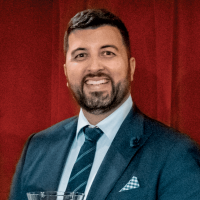

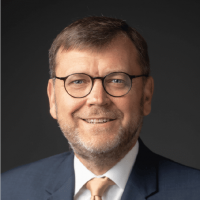
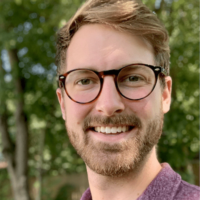


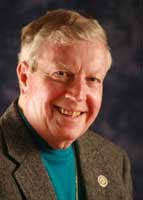 In the fall of 2007 a graduate course was offered on the thought of Germain Grisez who then visited the class in November to discuss his work with students. Germain Grisez is a prominent Catholic philosopher and theologian who received his Ph.D. in philosophy from the University of Chicago where he studied with the famous medieval scholar Richard McKeon. He taught at Georgetown University and since 1978 has been the Flynn Professor of Christian Ethics at Mount Saint Maryís University, Emmitsburg, Maryland.
In the fall of 2007 a graduate course was offered on the thought of Germain Grisez who then visited the class in November to discuss his work with students. Germain Grisez is a prominent Catholic philosopher and theologian who received his Ph.D. in philosophy from the University of Chicago where he studied with the famous medieval scholar Richard McKeon. He taught at Georgetown University and since 1978 has been the Flynn Professor of Christian Ethics at Mount Saint Maryís University, Emmitsburg, Maryland.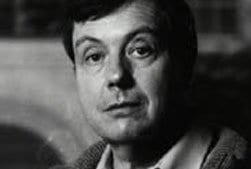 This fall the MA philosophy department will offer another course in its series “Living Philosophers in Dialogue.” In these courses the works of a significant living philosopher are studied. Later in the semester the philosopher studied visits the class for a dialogue with the students on the works they have studied. The course this fall will be on the works of Dr. Peter van Inwagen who is the John Cardinal O’Hara Professor of Philosophy at the University of Notre Dame. He is one of the leading figures in contemporary metaphysics and philosophy of religion. His monograph An Essay on Free Will played an important role in rehabilitating libertarianism with respect to free will where he is the first philosopher to introduce the terms incompatibilism and compatibilism with respect to free will and determinism. In 2003 Professor van Inwagen gave the prestigious Gifford Lectures that are published in his book The Problem of Evil in which he argues that the argument from evil fails to disprove the existence of God. Some of his other books are:
This fall the MA philosophy department will offer another course in its series “Living Philosophers in Dialogue.” In these courses the works of a significant living philosopher are studied. Later in the semester the philosopher studied visits the class for a dialogue with the students on the works they have studied. The course this fall will be on the works of Dr. Peter van Inwagen who is the John Cardinal O’Hara Professor of Philosophy at the University of Notre Dame. He is one of the leading figures in contemporary metaphysics and philosophy of religion. His monograph An Essay on Free Will played an important role in rehabilitating libertarianism with respect to free will where he is the first philosopher to introduce the terms incompatibilism and compatibilism with respect to free will and determinism. In 2003 Professor van Inwagen gave the prestigious Gifford Lectures that are published in his book The Problem of Evil in which he argues that the argument from evil fails to disprove the existence of God. Some of his other books are: In the fall of 2006 a graduate course was offered on the thought of Alasdair MacIntyre which culminated in a visit to the class by Prof. MacIntyre at the end of November. MacIntyre, who is noted for his work in moral and political philosophy, was educated at the University of London and Oxford University. His early teaching career was in England where he taught at Manchester University, Leeds University, Essex University and Oxford. He came to the United States in 1969 where he has taught at Brandeis University, Wellesley College, Vanderbilt University, and Duke University where he is professor emeritus. Since 2000 he has been the Rev. John A. O’Brien Senior Research Professor and the Permanent Senior Research Fellow at the University of Notre Dame. Prof. MacIntyre was the recipient of a Metcalf Prize in 1974 and has honorary degrees from Swarthmore College, Queens University of Belfast, University of Essex, Williams College, and The New School for Social Research. He is a past president of American Philosophical Association.
In the fall of 2006 a graduate course was offered on the thought of Alasdair MacIntyre which culminated in a visit to the class by Prof. MacIntyre at the end of November. MacIntyre, who is noted for his work in moral and political philosophy, was educated at the University of London and Oxford University. His early teaching career was in England where he taught at Manchester University, Leeds University, Essex University and Oxford. He came to the United States in 1969 where he has taught at Brandeis University, Wellesley College, Vanderbilt University, and Duke University where he is professor emeritus. Since 2000 he has been the Rev. John A. O’Brien Senior Research Professor and the Permanent Senior Research Fellow at the University of Notre Dame. Prof. MacIntyre was the recipient of a Metcalf Prize in 1974 and has honorary degrees from Swarthmore College, Queens University of Belfast, University of Essex, Williams College, and The New School for Social Research. He is a past president of American Philosophical Association.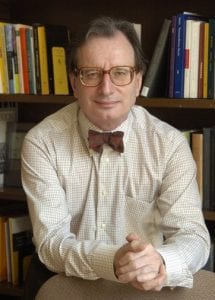 In April of 2008 Jean-Luc Marion discussed his work with a class of graduate philosophy students who had been studying his writings during the spring semester. Jean-Luc Marion is an internationally known French Catholic philosopher and theologian who works in the areas of modern philosophy, contemporary phenomenology and philosophy of religion and is known for his attempt to synthesize the Catholic intellectual tradition with post-modernist thought. Marion studied at the University Paris X ñ Nanterre and the Sorbonne. He did graduate work in philosophy at the Ecole Normale Superieure in Paris where he studied with Jacques Derrida and Louis Althusser. Marion was also influenced by the theologians Henri de Lubac and Hans Urs von Balthasar and the philosopher Emmanuel Levinas. He has taught at the University of Poitiers, the University Paris X ñ Nanterre. He currently teaches at the Sorbonne and the University of Chicago. In 1992 Prof. Marion was awarded the Grand Prix du Philosophie de l’Academie Francaise. Some of his original work in philosophy concerns the notion of a saturated phenomenon; the idea that there are phenomena of such overflowing givenness that our consciousness of these phenomena are flooded or saturated. Marion is a prolific writer. His writings include:
In April of 2008 Jean-Luc Marion discussed his work with a class of graduate philosophy students who had been studying his writings during the spring semester. Jean-Luc Marion is an internationally known French Catholic philosopher and theologian who works in the areas of modern philosophy, contemporary phenomenology and philosophy of religion and is known for his attempt to synthesize the Catholic intellectual tradition with post-modernist thought. Marion studied at the University Paris X ñ Nanterre and the Sorbonne. He did graduate work in philosophy at the Ecole Normale Superieure in Paris where he studied with Jacques Derrida and Louis Althusser. Marion was also influenced by the theologians Henri de Lubac and Hans Urs von Balthasar and the philosopher Emmanuel Levinas. He has taught at the University of Poitiers, the University Paris X ñ Nanterre. He currently teaches at the Sorbonne and the University of Chicago. In 1992 Prof. Marion was awarded the Grand Prix du Philosophie de l’Academie Francaise. Some of his original work in philosophy concerns the notion of a saturated phenomenon; the idea that there are phenomena of such overflowing givenness that our consciousness of these phenomena are flooded or saturated. Marion is a prolific writer. His writings include: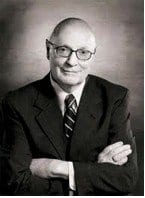 In the fall of 2009, graduate students studied some important works of Nicholas Rescher, who came to visit the class in November. Nicholas Rescher is a University Professor of Philosophy at the University of Pittsburgh where he is also Chairman of the Center for Philosophy of Science. He was educated at Queens College in New York and Princeton University where he received his Ph.D. at the age of 22, the youngest ever at the time. He has worked for the Rand Corporation as a research mathematician, and has taught at Princeton University, Lehigh University, and since 1970 the University of Pittsburgh.
In the fall of 2009, graduate students studied some important works of Nicholas Rescher, who came to visit the class in November. Nicholas Rescher is a University Professor of Philosophy at the University of Pittsburgh where he is also Chairman of the Center for Philosophy of Science. He was educated at Queens College in New York and Princeton University where he received his Ph.D. at the age of 22, the youngest ever at the time. He has worked for the Rand Corporation as a research mathematician, and has taught at Princeton University, Lehigh University, and since 1970 the University of Pittsburgh.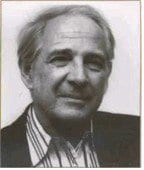 In the spring of 2007 the distinguished American philosopher John Searle visited a class for a discussion with graduate students who had been studying some of his writings in a course devoted to his work in philosophy. John Searle is the Slusser Professor of Philosophy at the University of California, Berkeley and one of the leading philosophers in the world. He was educated at the University of Wisconsin and received a B.A., M.A. and D.Phil. from Oxford University. He has received honorary degrees from the University of Lugano, University of Torino, University of Bucharest, Adelphi University, and University of Wisconsin. He has also received numerous awards including the Jean Nicod Prize in France, the Puffendorf Medal in Sweden, The Jovellanos Prize in Spain, the Tasan Award in Korea, and the National Humanities Medal in the United States. He was a past president of the American Philosophical Association. Although Professor Searle has taught at the University of California since 1959, he has also been a visiting professor at dozens of universities including the Sorbonne, the Catholic University of Lublin, Charles University in Prague, Syracuse University, University of Aarhus in Denmark, University of Toronto, University of Florence, the University of Oslo. He has given hundreds of lectures at colleges and universities throughout North and South America, Europe, and Asia.
In the spring of 2007 the distinguished American philosopher John Searle visited a class for a discussion with graduate students who had been studying some of his writings in a course devoted to his work in philosophy. John Searle is the Slusser Professor of Philosophy at the University of California, Berkeley and one of the leading philosophers in the world. He was educated at the University of Wisconsin and received a B.A., M.A. and D.Phil. from Oxford University. He has received honorary degrees from the University of Lugano, University of Torino, University of Bucharest, Adelphi University, and University of Wisconsin. He has also received numerous awards including the Jean Nicod Prize in France, the Puffendorf Medal in Sweden, The Jovellanos Prize in Spain, the Tasan Award in Korea, and the National Humanities Medal in the United States. He was a past president of the American Philosophical Association. Although Professor Searle has taught at the University of California since 1959, he has also been a visiting professor at dozens of universities including the Sorbonne, the Catholic University of Lublin, Charles University in Prague, Syracuse University, University of Aarhus in Denmark, University of Toronto, University of Florence, the University of Oslo. He has given hundreds of lectures at colleges and universities throughout North and South America, Europe, and Asia.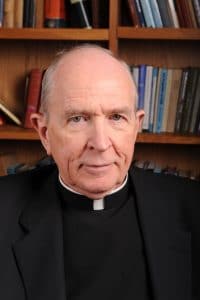 In the spring of 2012, a graduate course was offered on the works of the renowned phenomenologist Robert Sokolowski. Near the end of the semester, he visited the class to discuss his work with the students.
In the spring of 2012, a graduate course was offered on the works of the renowned phenomenologist Robert Sokolowski. Near the end of the semester, he visited the class to discuss his work with the students.

